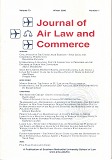FAQ #12: Are the weaknesses and compromises in this plan likely to be permanent?
The most probable immediate outcome of U.S. passage of a land claims recognition law would be the prompt start of international negotiations -- negotiations which will never happen otherwise -- toward a new treaty (or new bilateral treaties) in which a number of the weaknesses and compromises necessary at this stage could be resolved.
Hopefully the resulting new space treaty will provide uniform international recognition of property rights in space in return for providing non-discriminatory access to all. Enforcement mechanisms, revision of the free access rules, permanence of claims, questions of sovereignty and legal jurisdiction, size of subsequent claims, etc., etc., might also be on the agenda.
At the moment, the diplomatic community, much of which would prefer space remain open only to governments anyway, sees much higher priorities than a new space treaty. If this legislation passes, and nothing further is done, the U.S. will have created the de facto property regime for the Moon, and settlement will seem imminent. That should give the diplomatic community a strong incentive to start negotiations toward a new treaty.

Questions & Answers about Lunar Land Claims Recognition
Note: The first 25 FAQs below are reprinted from the Space Settlement Initiative ![]() website.
website.
What is the real purpose of enacting a Lunar land claims recognition law?
What does international law say about private property ownership in space?
Can there be property ownership without national sovereignty?
What if other nations refuse to recognize land claims in space?
Why not allow smaller, limited land claims for easier steps than settlement?
Could lunar land really be worth enough money to make a difference?
What conditions should the US set for recognition of a claim?
How much land should a settlement be able to claim... and why?
Are the weaknesses and compromises in this plan likely to be permanent?
Could other sources of revenue be enough without land claims recognition?
What effect would this have on NASA and the aerospace companies?
More FAQs
The FAQs above cover basic questions about Lunar Land Claims Recognition. The following questions address more advanced issues.
If we really went to the Moon in 1969, why aren't we there now?
What were the assumptions before the Outer Space Treaty, (e.g. Robert Heinlein)?
Will changing how NASA works bring the taxpayers back on board?
Could this law force the US to recognize a foreign government's Lunar land claim?
Would Article VI of the Outer Space Treaty prohibit Lunar land claims recognition?
| Back from Are the weaknesses and compromises... to Frequently Asked Questions (FAQs) Back from Are the weaknesses and compromises... to the Space Settlement Institute home page |




